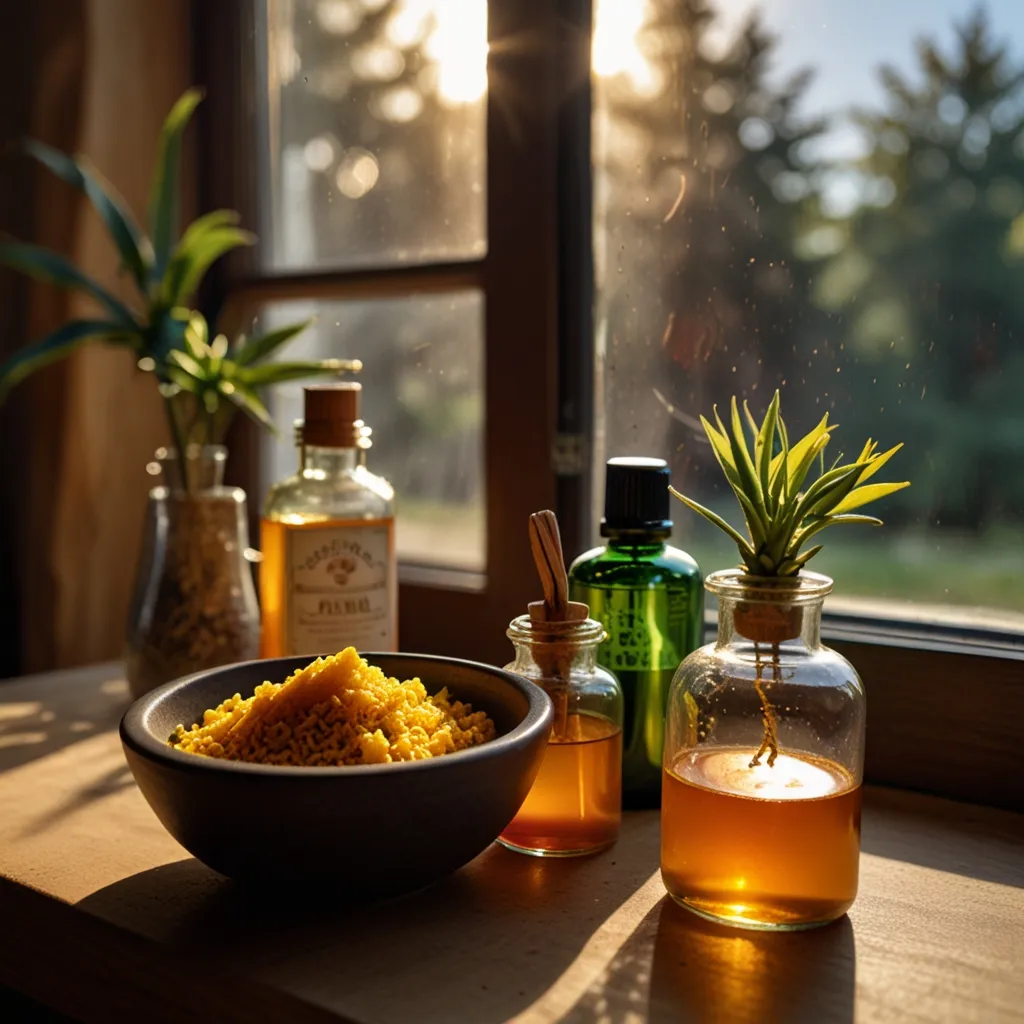Psoriasis can be a real pain. Those red, scaly patches that show up on your elbows, knees, and scalp are not just annoying; they can be downright distressing. While there’s no magic cure for this skin condition, several natural treatments can help ease the symptoms, making life a little more comfortable. And yep, these can be used alongside your regular meds to step up the relief game.
First up, let’s talk about the wonder plant, aloe vera. Known for its soothing anti-inflammatory properties, aloe vera gel is like a cool drink of water for irritated skin. Dab a bit of this gel directly onto those troublesome spots up to three times a day. If you’re shopping for aloe products, aim for those containing 0.5 percent aloe vera. Your skin will thank you.
Next in the lineup is apple cider vinegar, the pantry staple with a thousand uses. For those battling scalp itch from psoriasis, mix equal parts of organic apple cider vinegar and water. Apply this solution to your scalp a few times each week. Just be careful—if it stings, dilute it some more. And always rinse it off after it dries to avoid irritation. If you have any open wounds or cracked skin, skip the vinegar entirely.
Capsaicin—yes, the stuff that gives chili peppers their kick—can also work wonders. It’s got anti-inflammatory superpowers that can calm down skin flare-ups. Look for creams or ointments with capsaicin; they help block the pain signals from the nerve endings and reduce inflammation, redness, and scaling. Just a heads up, it might sting a bit at first, but that’s temporary.
Then there’s the magic of Dead Sea and Epsom salts. A soak in a warm bath sprinkled with these salts can help slough off scales and soothe itching. Spend about 15 minutes in the bath, and remember to moisturize afterward to keep your skin from drying out.
Oatmeal baths might remind you of breakfast, but they can also help calm your psoriasis. Although science hasn’t fully backed this up, many people swear by the itch and redness relief they get from soaking in an oat-infused bath. Making an oat paste to apply to those itchy spots works too.
Tea tree oil is another natural remedy that brings relief to many. Known for its antiseptic qualities, tea tree oil can be applied to the skin or used in shampoos to tackle scalp psoriasis. Just be cautious; some people are allergic to it. It’s best to do a patch test before going all in.
Turmeric, often found in your spice rack, is also a hero here. Its active ingredient, curcumin, brims with anti-inflammatory and antioxidant properties. Whether you pop it in supplement form or add it generously to your food—hello, delicious curries—it can help keep psoriasis and psoriatic arthritis flares in check.
Ever heard of Mahonia aquifolium? Known as Oregon grape, this antimicrobial herb can treat mild-to-moderate psoriasis. Look for creams with 10 percent mahonia, but it’s best to use it under a doctor’s guidance.
A bit of sunlight can actually do wonders for your psoriasis. Natural sunlight helps slow down those overactive skin cells. But don’t go baking in the sun for hours. A little bit goes a long way, and always slap on sunscreen with SPF 30 or higher to shield against UVA and UVB rays.
What you eat can also impact your psoriasis. A diet rich in fruits, vegetables, whole grains, and lean proteins can help manage those pesky symptoms. Some folks find that specific foods trigger their psoriasis, so a food diary might come in handy to pinpoint any culprits.
Supplements like fish oil, vitamin D, and oregano oil may offer some relief too. Always have a chat with your doc before starting any new supplements to make sure they’re safe and won’t mess with other meds you’re taking.
Acupuncture, the ancient Chinese technique of inserting thin needles into specific points of your body, has helped some folks with psoriasis, though more research is needed. If you’re up for trying it, make sure to go to a qualified professional.
And let’s not forget stress – the silent trigger for many psoriasis flares. Meditation, yoga, and massage are fabulous techniques to keep stress in check. While these practices won’t cure your psoriasis, they can complement your treatment plan beautifully.
So, while an all-out cure for psoriasis doesn’t exist yet, these natural treatments offer various ways to ease the symptoms. Whether you’re slathering on aloe vera, soaking in Dead Sea salts, or chillin’ with acupuncture, these remedies can enhance your quality of life. Just remember, always check with your healthcare provider before diving into new treatments to make sure they’re the right fit for you.






